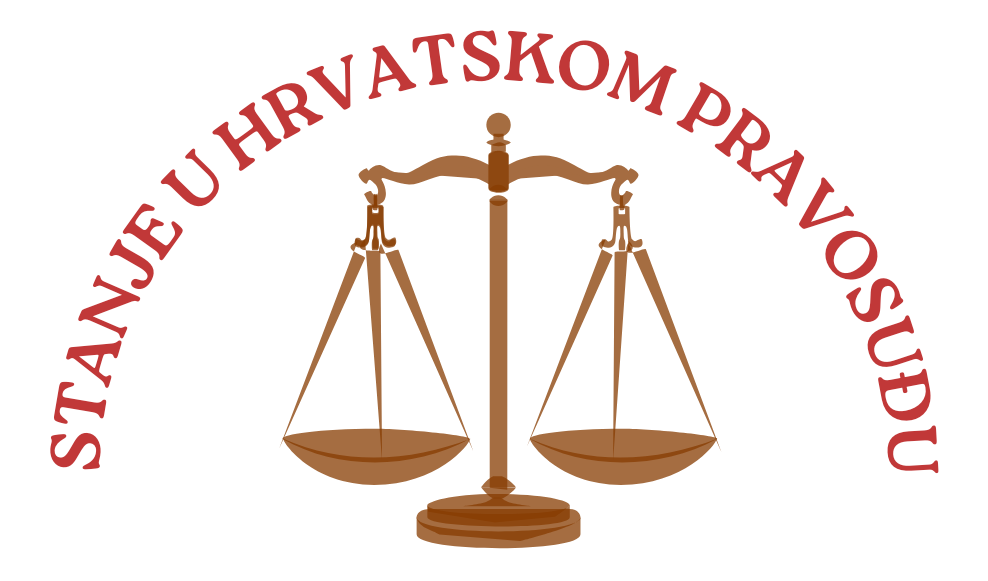Centre for Democracy and Law Miko Tripalo, on October 18, 2022, in hall 7 of the Faculty of Law in Zagreb, held a round table on the topic How are cases assigned to work in the judiciary in the Republic of Croatia?
Random assignment of cases to judges is one of the basic instruments for ensuring the impartiality and objectivity of trials. This prompted us to analyze the legal and sub-legal provisions on the allocation procedure. We were interested in whether the regulations ensure that cases are really assigned to judges at random or leave room for court presidents, court administration or even the Ministry of Justice to influence this assignment.
The introduction to the round table was given by Mr. Neven Mates, which you can read below:
After the introductory presentation, the gathering was addressed by Ivana Zeljko and Matija Ninić, students of the Faculty of Law in Zagreb and volunteers at the Miko Tripalo Centre, who presented the results of the conducted research:
Then the presenters, Srđan Gavranić, from the Commercial Court in Dubrovnik, Sanja Grgurić Hojski, from the Municipal Civil Court in Zagreb, and Alan Uzelac, from the Faculty of Law in Zagreb, presented their considerations and opened the discussion for all present.
Several judges pointed out in the discussion that the eSpis brought a number of positive changes and that it represents a very useful tool from the perspective of court presidents, which increased transparency and removed suspicions of favoritism. Criticism of legal solutions was expressed, but it was also pointed out that eSpis brought transparency and acceleration of procedures. With manual allocation, there was a greater possibility of influencing the allocation. With the introduction of automatic allocation, there is almost no such possibility.
The party has insight into the work of the case, and the exceptions to the award originate from the request for exemption, but they must be publicly justified and explained. Every action and use of the system is visible in eSpis.
At the same time, some participants warned that eSpis is completely kept by the Ministry of Justice and Administration, and the courts apply it, while they have no structural input into that system. On the other hand, the annual work schedule is the basic tool of the president of the court.
Although the infrastructure occasionally gets stuck, eSpis has saved a lot of time through e-communication because it has significantly reduced the delivery time.
There is a certain misunderstanding of IT terms, and confusion appears.
eSpis has difficulties (often of a technical nature), it is constantly updated in accordance with changes in laws and by-laws. The process has certainly been speeded up and there is no manual allocation. A lot of parameters are put in place to prevent possible prediction of who the item will come to.
Part of the participants think that the balancing of subjects every three months is very little used because everything is equalized anyway by the end of the year. The group that was less burdened will be the first to receive new items. During the year, corrections refer to cases such as longer sick leave, correction of mistakes, etc.
Some participants see circular allocation as a corrective to random allocation.
The gathering warned of cases of deviations from the norms in the past, when cases were assigned outside of the regulations, without being sanctioned. Sanctions for violation of regulations on the assignment of cases are not applied, disciplinary procedures have not been initiated. Randomization is most important in the most prominent subjects. Then, the rules that are applied are from by-laws, not from the law. They are treated as a technical act, and not as something that should guarantee the impartiality of the judiciary. Digitization must not be an excuse to move those things that should be widely discussed into the technical sphere. The permanent verification body designs the eSpis system and proposes changes to the Code, but the eSpis is something that should be widely discussed.
Regarding the framework standards, part of the participants believes that they are not perfect, but that they must exist. However, the second part believed that the criteria prescribed by the Minister of Justice and Administration are a relic of the past, and that the developed systems do not know this. They meet the current expectations of the Minister, but do not encourage judges to be efficient and achieve better results. Framework standards are an instrument of the unfortunate present evil or necessary evil. Instead, part of the participants advocated a system for real valuation. It was warned that the system creates more administrative work for judges, and that the norms are constantly increasing.





